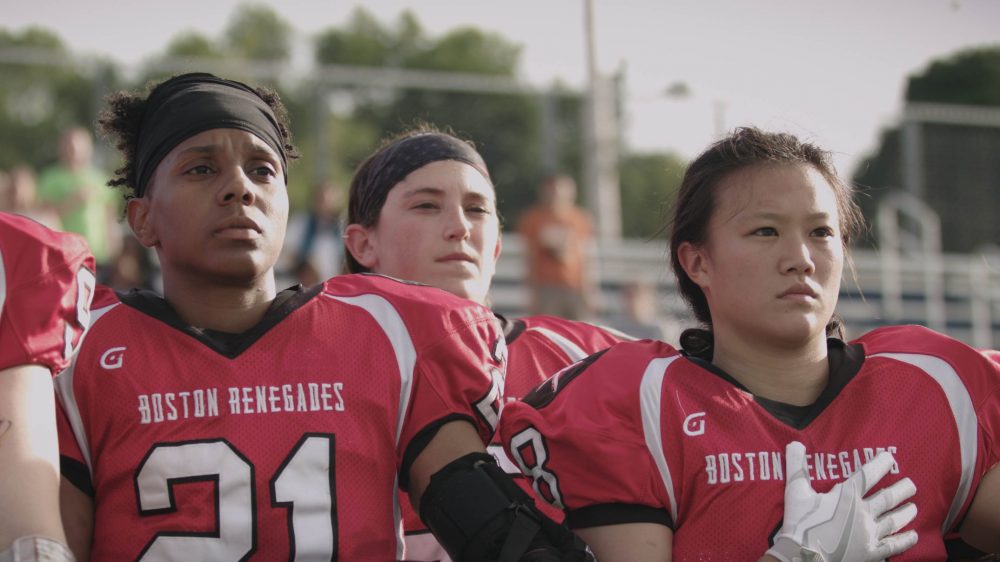Audrey Cleo Yap | Variety
June 30, 2020
In the opening scene of documentary “Born to Play,” members of the Boston Renegades are seen, quietly at first, engaged in the pre-game ritual of putting on pads and uniforms. But pretty soon, a chorus of hands slapping locker doors and throaty cheers erupt as the all-women Division-I tackle football team gets hyped up to step onto the field.
Such is the unbridled, doing-it-for-the-love spirit director Viridiana Lieberman hoped to capture in her feature-length directorial debut, for which Variety has an exclusive clip (above) and debuts on ESPN on July 1. Lieberman followed the Renegades, a Women’s Football Alliance team, throughout their 2018 season as they tried to capture the WFA national championship after falling short the season before.
The filmmaker and longtime women’s sports fan had completed a graduate degree in women’s studies where she examined cinematic representations of female athletes (her thesis turned into the book “Sports Heroines in Film”) and was hungry for a narrative she could pursue as a documentary.
“One of the things that I loved most about the team is that I felt like they were the purest form of the sport, in the sense that I don’t feel like there’s anything gendered about throwing a ball or making a tackle or running down the field,” says Lieberman, a Boston native herself. “Football culture has always been aligned with brute strength and domination and hard hits, but the sport itself is actually kind of like a game of chess.”
Lieberman didn’t want to shy away from that intensity. But she also observed a level of grace when she watched the women’s game, as shown by the athleticism of two of the film’s leads, quarterback Allison Cahill and cornerback Chanté Bonds.
“It is a contact sport, but it also requires great finesse. I don’t think those skills are particularly feminine in the sport — I think they are the skills of the sport [you need] to be successful,” she says. “That’s why I shot sequences in slow motion, so you could actually see the mechanics that were happening.”
The helmet-crushing, on-field action is juxtaposed by the quiet ordinariness of the players’ day jobs and private lives. The pay-to-play league means big sacrifices from the players, financially and otherwise: one Renegade flies in from Texas every weekend to participate, while others suffer life-changing injuries, including torn shoulders and ACLs. During shooting, Lieberman says she saw two instances of players being concussed on the field.
Which led Lieberman to consistently ask what it was all for, for the players at least.
“They don’t get paid. There are barely spectators in the stands — and that’s not to take anything away from the fans; they’re wonderful. But what is the incentive to do this? And it’s nothing but to play the sport,” she says.
Lieberman identifies as queer, but she lightheartedly describes “Born to Play” as “a gay film not about being gay.”
“Growing up as a lesbian, I feel like every story about a gay person or queer person I had to watch in the media was always a story of struggle, and I had this fantasy of kind of retelling stories where people just were who they are,” she explains.
Portraying the athletes matter-of-factly, some with same-sex partners and fiancés, was therefore deliberate.
“I’m just showing the world for what it is with these women,” she adds, “and they have created a community and a society amongst the team where those things just don’t play a factor.”

